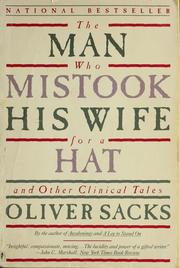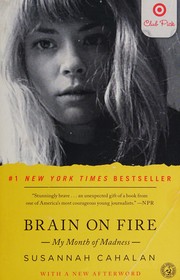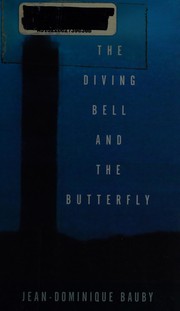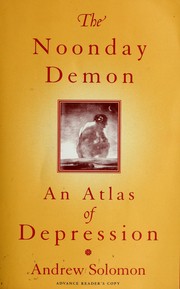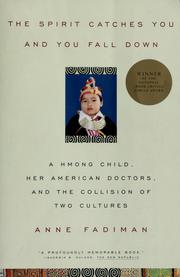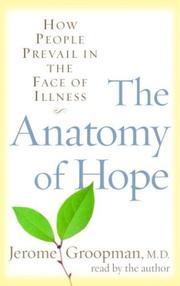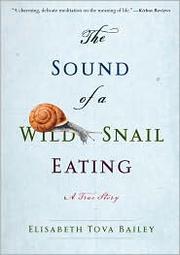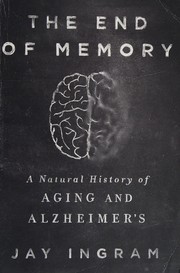Are you looking for a compelling and insightful book on illness? Whether you are seeking comfort, understanding, or perspective, the power of literature to shed light on the experience of illness is undeniable. In this article, we have curated a list of the 20 best books about illness that offer profound insights, powerful narratives, and invaluable wisdom. These books cover a wide range of illnesses and perspectives, providing a comprehensive look at the impact of illness on individuals and society.
Contents
- 1 20 Best Books About Illness
- 2 The Immortal Life of Henrietta Lacks
- 3 When Breath Becomes Air
- 4 The Man Who Mistook His Wife for a Hat
- 5 The Emperor of All Maladies: A Biography of Cancer
- 6 Brain on Fire: My Month of Madness
- 7 The Diving Bell and the Butterfly
- 8 The Gene: An Intimate History
- 9 The Noonday Demon: An Atlas of Depression
- 10 The Year of Magical Thinking
- 11 The Mind’s Eye
- 12 The Spirit Catches You and You Fall Down
- 13 The Hot Zone: The Terrifying True Story of the Origins of the Ebola Virus
- 14 The Man Who Touched His Own Heart: True Tales of Science, Surgery, and Mystery
- 15 The Anatomy of Hope: How People Prevail in the Face of Illness
- 16 The Sound of a Wild Snail Eating
- 17 The End of Memory: A Natural History of Aging and Alzheimer’s
- 18 The Cancer Chronicles: Unlocking Medicine’s Deepest Mystery
- 19 The Autistic Brain: Thinking Across the Spectrum
- 20 The Bipolar Disorder Survival Guide: What You and Your Family Need to Know
- 21 The Man Who Couldn’t Stop: OCD and the True Story of a Life Lost in Thought
- 22 Conclusion
- 23
- 24 20 Mormon History Best Books to Read – The 2024 Edition
- 25 Explore 20 Best Discipline For Toddlers Books with Our 2024 Update
- 26 Books on Leaves: 2024 Update of the Best Titles
20 Best Books About Illness
The Immortal Life of Henrietta Lacks
by Rebecca Skloot
The Immortal Life of Henrietta Lacks by Rebecca Skloot is a captivating non-fiction book about the remarkable and tragic story of Henrietta Lacks, a woman whose cancer cells were unknowingly taken and used for scientific research without her consent. Skloot delves into the ethical and medical implications of this, while also exploring the impact of Henrietta’s cells on modern medicine. The book sheds light on the intersection of race, class, and medical ethics, and the profound impact that Henrietta’s ‘immortal’ cells have had on scientific advancements. It’s a thought-provoking and poignant exploration of the complex relationship between individuals, their bodies, and the medical community. This illness book is a powerful and enlightening read that will linger in the reader’s mind long after the final page.
When Breath Becomes Air
by Paul Kalanithi
When Breath Becomes Air is a poignant memoir written by Paul Kalanithi, a neurosurgeon diagnosed with terminal cancer. This powerful book on illness delves into the author’s profound reflections on life, death, and the meaning of existence as he grapples with his own mortality. Kalanithi’s eloquent prose and introspective narrative offer a raw and unflinching look at the human experience, as he navigates the complexities of identity, purpose, and the fragility of health. Through his intimate account, readers are invited to contemplate the universal struggles and triumphs that accompany the human condition. When Breath Becomes Air is a deeply moving and thought-provoking illness book that inspires readers to confront the inevitable uncertainties of life with courage and grace.
The Man Who Mistook His Wife for a Hat
by Oliver Sacks
The Man Who Mistook His Wife for a Hat by Oliver Sacks is a captivating book about illness that delves into the fascinating and often bizarre world of neurological disorders. Through a collection of case studies, Sacks introduces readers to patients with a range of conditions, from amnesia and aphasia to Tourette’s syndrome and autism. With his compassionate and insightful writing, Sacks provides a unique perspective on the human experience and the profound impact that neurological challenges can have on individuals and their loved ones. The stories in this illness book are not only thought-provoking, but also deeply moving, offering a glimpse into the resilience of the human spirit in the face of adversity.
The Emperor of All Maladies: A Biography of Cancer
by Siddhartha Mukherjee
The Emperor of All Maladies: A Biography of Cancer by Siddhartha Mukherjee is a captivating and comprehensive exploration of the history, science, and human impact of cancer. This Pulitzer Prize-winning book illuminates the complex and often tumultuous journey of humanity’s battle against this formidable disease. Mukherjee skillfully weaves together personal stories, scientific breakthroughs, and societal attitudes towards cancer, offering a compelling narrative that sheds light on the profound impact of this illness on individuals and society as a whole. This illness book is a powerful and enlightening read that provides a deep understanding of the challenges and triumphs in the ongoing fight against cancer, making it an essential resource for anyone seeking to comprehend the complexities of this pervasive and deeply personal disease.
Brain on Fire: My Month of Madness
by Susannah Cahalan
Brain on Fire: My Month of Madness by Susannah Cahalan is a gripping memoir that chronicles the author’s harrowing experience with a rare illness that initially baffled doctors. The book takes readers on a journey through Cahalan’s descent into madness, as she grapples with a mysterious illness that causes her to experience hallucinations, paranoia, and seizures. As her symptoms worsen, her behavior becomes increasingly erratic, leading to a terrifying and life-threatening ordeal. Through her vivid and compelling storytelling, Cahalan provides a raw and intimate account of her struggle with illness, offering a glimpse into the frightening and isolating world of mental and physical health challenges. Brain on Fire is a powerful and illuminating read that sheds light on the complexities of the human brain and the resilience of the human spirit.
The Diving Bell and the Butterfly
by Jean-Dominique Bauby
The Diving Bell and the Butterfly is a powerful memoir written by Jean-Dominique Bauby, the former editor-in-chief of French Elle magazine, after suffering a debilitating stroke. The book offers an intimate look into Bauby’s life after being diagnosed with locked-in syndrome, a condition where he was paralyzed from head to toe, only able to move his left eyelid. With incredible determination and resilience, Bauby wrote the memoir by blinking his left eye to dictate the words one letter at a time. The result is a poignant and lyrical account of his experiences, thoughts, and memories as he navigates life with his physical limitations. This extraordinary and inspiring book offers a unique perspective on the human spirit and the resilience of the human mind in the face of extreme adversity. It is a must-read for anyone looking for a profound and moving exploration of the human experience in the face of adversity.
The Gene: An Intimate History
by Siddhartha Mukherjee
The Gene: An Intimate History by Siddhartha Mukherjee is a captivating exploration of the complex and fascinating world of genetics. Through a blend of scientific research, personal stories, and historical accounts, Mukherjee delves into the intricate mechanisms of the gene and its profound impact on human existence. This thought-provoking book takes readers on a journey through the history of genetics, from Gregor Mendel’s pea plant experiments to the modern era of gene-editing technology. Mukherjee’s eloquent prose and deep understanding of the subject make this book a compelling and enlightening read for anyone interested in the intricacies of our genetic makeup. With its captivating narrative and insightful analysis, The Gene: An Intimate History offers a profound understanding of the role genes play in shaping our lives and the broader implications for the future of humanity.
The Noonday Demon: An Atlas of Depression
by Andrew Solomon
The Noonday Demon: An Atlas of Depression by Andrew Solomon is a groundbreaking book about illness that provides a comprehensive and deeply personal exploration of depression. Solomon combines his own experience with depression with extensive research, interviews, and historical accounts to create an atlas that delves into the complexities of this debilitating illness. The book offers a multifaceted perspective on depression, examining its biological, psychological, and social dimensions. Solomon’s writing is both insightful and compassionate, providing a wealth of information while also offering hope and understanding to those struggling with depression. The Noonday Demon is a must-read for anyone seeking a deeper understanding of this pervasive illness and its impact on individuals and society as a whole.
The Year of Magical Thinking
by Joan Didion
The Year of Magical Thinking is a poignant memoir by Joan Didion that delves into the author’s experience of grief and loss after the sudden death of her husband. The book explores the complexities of mourning, the disorienting effects of sudden bereavement, and the author’s attempts to make sense of her overwhelming emotions. Didion’s prose is deeply introspective and raw, offering a powerful insight into the human experience of grief and the ways in which it can manifest as a form of magical thinking. This compelling book about illness delves into the author’s personal journey through the tumultuous aftermath of loss, offering a moving and insightful reflection on the nature of love, loss, and resilience.
The Mind’s Eye
by Oliver Sacks
The Mind’s Eye by Oliver Sacks is a captivating book about illness that delves into the fascinating world of neurological disorders and the impact they have on the human mind. Through a collection of case studies and personal anecdotes, Sacks explores the experiences of individuals who have been affected by various neurological conditions, such as blindness and visual impairments. He skillfully weaves together their stories, offering profound insights into the ways in which the brain adapts and compensates for illnesses that affect perception and cognition. Sacks’ unique blend of scientific expertise and compassionate storytelling makes this book on illness a compelling and enlightening read for anyone interested in the complexities of the human brain and the resilience of the human spirit.
The Spirit Catches You and You Fall Down
by Anne Fadiman
The Spirit Catches You and You Fall Down by Anne Fadiman is a compelling and thought-provoking book about the collision of two cultures and the devastating effects of miscommunication in the treatment of a Hmong child with epilepsy. Fadiman delves into the clash between the American medical system and the traditional Hmong beliefs, providing a poignant exploration of the consequences of misunderstanding in the context of illness. Through the story of Lia Lee, a young girl caught between two worlds, the book offers a profound reflection on the complexities and challenges of cross-cultural medical care. Fadiman’s sensitive and empathetic approach to the subject matter makes this book a gripping and enlightening read for anyone interested in the intersection of culture and healthcare.
The Hot Zone: The Terrifying True Story of the Origins of the Ebola Virus
by Richard Preston
The Hot Zone by Richard Preston is a gripping book about illness that delves into the terrifying origins of the Ebola virus. Set in Africa and the United States, the book follows the deadly outbreak of the virus and the efforts of scientists and doctors to contain it. With a mix of scientific detail and heart-pounding narrative, Preston paints a chilling picture of the virus’s potential to cause a global pandemic. The book takes readers on a hair-raising journey into the world of infectious diseases, exploring the deadly nature of viruses and the real-life heroes who risk their lives to study and combat them. The Hot Zone is a compelling and eye-opening read that will leave you on the edge of your seat, with a newfound appreciation for the dangers posed by illnesses like Ebola.
The Man Who Touched His Own Heart: True Tales of Science, Surgery, and Mystery
by Rob Dunn
The Man Who Touched His Own Heart: True Tales of Science, Surgery, and Mystery by Rob Dunn is a captivating exploration of the human heart and the pioneers of cardiology. Dunn delves into the history of heart surgery, uncovering the remarkable stories of the individuals who have pushed the boundaries of medical knowledge and technology. Through vivid storytelling and meticulous research, he brings to life the triumphs and tragedies of those who have dedicated their lives to understanding and treating heart disease. This insightful book on illness provides a fascinating glimpse into the intricacies of the human heart and the relentless pursuit of medical advancement. Dunn’s engaging narrative will leave readers with a newfound appreciation for the complexities of the heart and the extraordinary individuals who have shaped the field of cardiology.
The Anatomy of Hope: How People Prevail in the Face of Illness
by Jerome Groopman
The Anatomy of Hope by Jerome Groopman is a compelling book about illness that explores the power of hope in the face of adversity. Through a series of poignant and inspiring stories, Groopman delves into the human experience of illness, tackling the physical, emotional, and psychological aspects of the journey. Drawing from his experiences as a doctor, he sheds light on the importance of maintaining hope and resilience during times of great struggle. This thought-provoking book on illness offers a profound understanding of the human spirit and the capacity to overcome even the most daunting challenges. Groopman’s insightful exploration of hope as a vital force in the healing process makes this a must-read for anyone seeking inspiration and understanding in the face of adversity.
The Sound of a Wild Snail Eating
by Elisabeth Tova Bailey
The Sound of a Wild Snail Eating by Elisabeth Tova Bailey is a captivating and insightful book about the author’s experience with a debilitating illness. Through her beautifully written prose, Bailey shares how a small woodland snail becomes her unexpected companion during her long and arduous journey with sickness. The book explores themes of resilience, companionship, and the profound connection between humans and nature. With lyrical and evocative storytelling, Bailey takes readers on a remarkable journey of self-discovery and healing in the midst of her struggle with illness. The Sound of a Wild Snail Eating is a poignant and thought-provoking read that offers a unique perspective on the human experience of dealing with adversity and the healing power of nature.
The End of Memory: A Natural History of Aging and Alzheimer’s
by Jay Ingram
The End of Memory: A Natural History of Aging and Alzheimer’s by Jay Ingram is a fascinating exploration of the complexities of memory and the devastating effects of Alzheimer’s disease. In this captivating book about illness, Ingram delves into the science of aging and the gradual decline of memory, offering insight into the mechanisms behind Alzheimer’s and the impact it has on individuals and their loved ones. With a compelling blend of personal stories, scientific research, and historical perspectives, the book provides a thought-provoking look at the nature of memory and the challenges of confronting the illness of Alzheimer’s. Ingram’s engaging narrative style and deep understanding of the subject make this book a compelling and informative read for anyone interested in the complexities of aging and the devastating effects of Alzheimer’s disease.
The Cancer Chronicles: Unlocking Medicine’s Deepest Mystery
by George Johnson
The Cancer Chronicles: Unlocking Medicine’s Deepest Mystery by George Johnson is a captivating exploration of the history, science, and personal stories intertwined with the complex and enigmatic disease of cancer. In this illuminating book about illness, Johnson delves into the origins of cancer, the ongoing quest for a cure, and the impact of genetic and environmental factors on its development. Through a combination of scientific research, historical anecdotes, and personal narratives, the author provides a thought-provoking and comprehensive look at the disease, offering both hope and insight into the ongoing battle against cancer. The Cancer Chronicles is a compelling and informative read for anyone seeking to deepen their understanding of this pervasive and challenging illness.
The Autistic Brain: Thinking Across the Spectrum
by Temple Grandin
The Autistic Brain by Temple Grandin provides a fascinating exploration of the unique way autistic individuals think and perceive the world. Grandin, herself being on the autism spectrum, offers valuable insights into the strengths and challenges that come with this neurological condition. This insightful book about illness delves into the science behind autism, while also sharing Grandin’s personal experiences and success stories. With her expertise in animal behavior and her own journey with autism, Grandin offers a compelling perspective on the potential of the autistic mind. Whether you’re a parent, educator, or someone interested in understanding autism, this illness book provides a thought-provoking and informative look at the autistic brain.
The Bipolar Disorder Survival Guide: What You and Your Family Need to Know
by David J. Miklowitz
The Bipolar Disorder Survival Guide: What You and Your Family Need to Know by David J. Miklowitz is a comprehensive and practical book on illness. It provides valuable information and guidance for individuals and families dealing with bipolar disorder. The author, a renowned expert in the field, offers insights into the nature of the disorder, its treatment options, and strategies for managing symptoms. This book about illness emphasizes the importance of self-care, medication compliance, and the role of family support in the recovery process. With its clear and compassionate approach, this illness book serves as a valuable resource for anyone seeking to understand and cope with bipolar disorder, offering hope and practical tools for navigating the challenges of this condition.
The Man Who Couldn’t Stop: OCD and the True Story of a Life Lost in Thought
by David Adam
The Man Who Couldn’t Stop: OCD and the True Story of a Life Lost in Thought by David Adam is a captivating book about illness that delves into the author’s personal struggle with obsessive-compulsive disorder (OCD). Adam provides an intimate and honest account of his battle with the debilitating condition, offering a rare insight into the mind of someone plagued by intrusive thoughts and compulsive behaviors. Through his own experiences and extensive research, Adam explores the complexities of OCD, its impact on daily life, and the various treatment options available. This compelling narrative not only sheds light on the challenges faced by individuals living with this illness book, but also offers hope and understanding to those who may be unfamiliar with the condition. The Man Who Couldn’t Stop is a powerful and enlightening read that will resonate with anyone touched by OCD.
Conclusion
Exploring the 20 best books about Illness can provide readers with invaluable insight, empathy, and understanding of the human experience with health challenges. These books offer a diverse range of perspectives and emotions, shedding light on the impact of illness on individuals and their loved ones. Whether seeking solace, education, or connection, these books about illness offer a compelling and enriching reading experience for anyone interested in the complexities of health and wellness.
Which Illness book is best?
The best book on Illness can vary with personal preference, but three widely recommended titles are:
- The Immortal Life of Henrietta Lacks by Rebecca Skloot,
- When Breath Becomes Air by Paul Kalanithi,
- The Man Who Mistook His Wife for a Hat by Oliver Sacks.
Each offers valuable insights and could be a great starting point.
What are the best books to learn about Illness?
For those looking to learn about Illness, there is a wealth of literature that can provide a comprehensive understanding of the subject. Some of the most highly recommended books include:
- The Immortal Life of Henrietta Lacks by Rebecca Skloot,
- When Breath Becomes Air by Paul Kalanithi,
- The Man Who Mistook His Wife for a Hat by Oliver Sacks,
- The Emperor of All Maladies: A Biography of Cancer by Siddhartha Mukherjee,
- Brain on Fire: My Month of Madness by Susannah Cahalan,
- The Diving Bell and the Butterfly by Jean-Dominique Bauby,
- The Gene: An Intimate History by Siddhartha Mukherjee,
- The Noonday Demon: An Atlas of Depression by Andrew Solomon,
- The Year of Magical Thinking by Joan Didion,
- The Mind’s Eye by Oliver Sacks
These books offer a range of perspectives on Illness, covering various aspects and approaches to the subject.
What are the best books on Illness?
The best books on Illness include:
- The Immortal Life of Henrietta Lacks by Rebecca Skloot,
- When Breath Becomes Air by Paul Kalanithi,
- The Spirit Catches You and You Fall Down by Anne Fadiman,
- The Hot Zone: The Terrifying True Story of the Origins of the Ebola Virus by Richard Preston,
- The Noonday Demon: An Atlas of Depression by Andrew Solomon,
- The Diving Bell and the Butterfly by Jean-Dominique Bauby.
Each offers unique insights into the subject. While these books on the topic of Illness are highly regarded, it’s important to note that any list of ‘best’ books is subjective and reflects a range of opinions.
What are the best Illness books of all time?
Choosing the best Illness books of all time can vary depending on who you ask, but seven titles that are often celebrated include
- The Immortal Life of Henrietta Lacks by Rebecca Skloot,
- When Breath Becomes Air by Paul Kalanithi,
- Brain on Fire: My Month of Madness by Susannah Cahalan,
- The Noonday Demon: An Atlas of Depression by Andrew Solomon,
- The Mind’s Eye by Oliver Sacks,
- The Hot Zone: The Terrifying True Story of the Origins of the Ebola Virus by Richard Preston,
- and The Spirit Catches You and You Fall Down by Anne Fadiman.
Each of these books has made a significant impact in the field of Illness and continues to be influential today.



